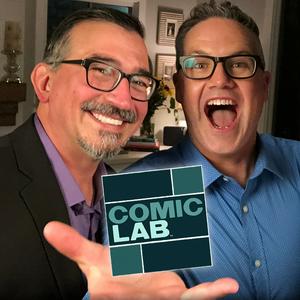The podcast about making comics — and making a living from comics! It's half shop talk, half how-to, and half friendship. WE SQUEEZED IN THREE HALVES. It's tips and tricks and all the joys of cartooning as a pro. So pull up your drawing chair, put on some headphones, and join us while you draw! And if you like what you hear, join our community at patreon.com/comiclab (For sponsorship inquiries:
[email protected])
